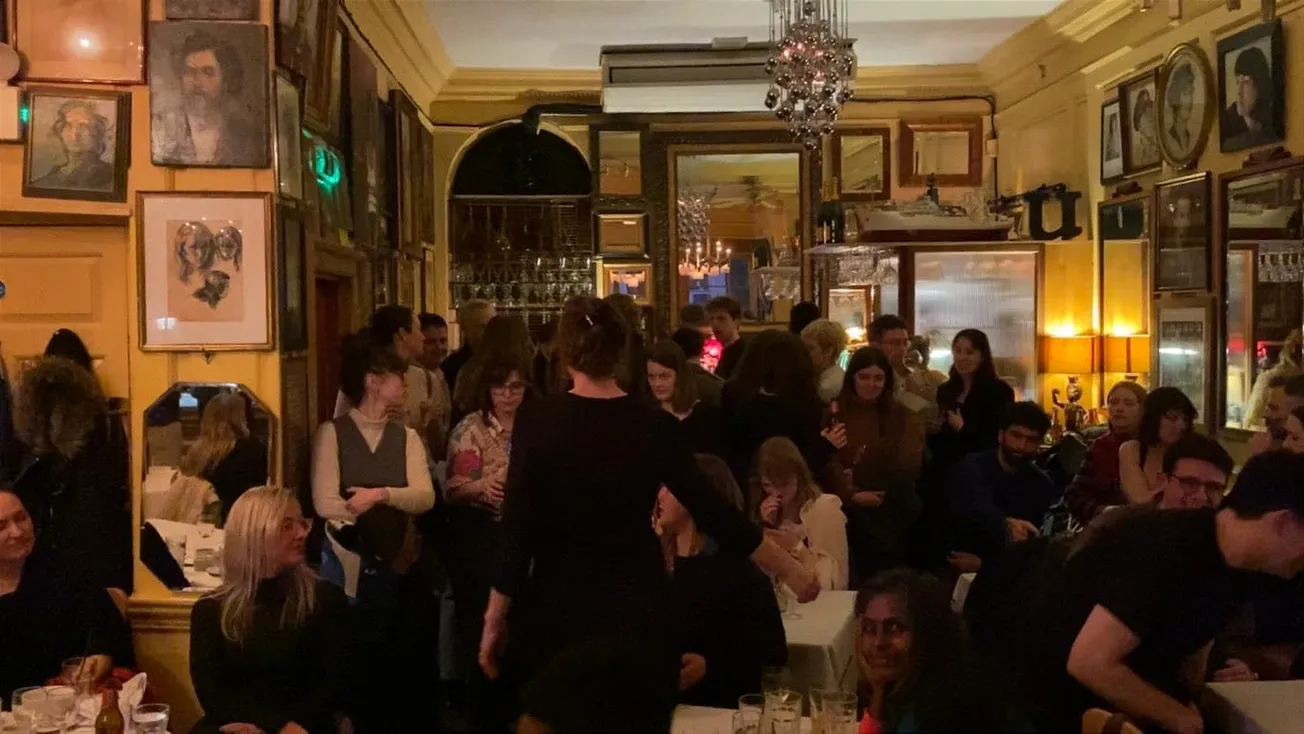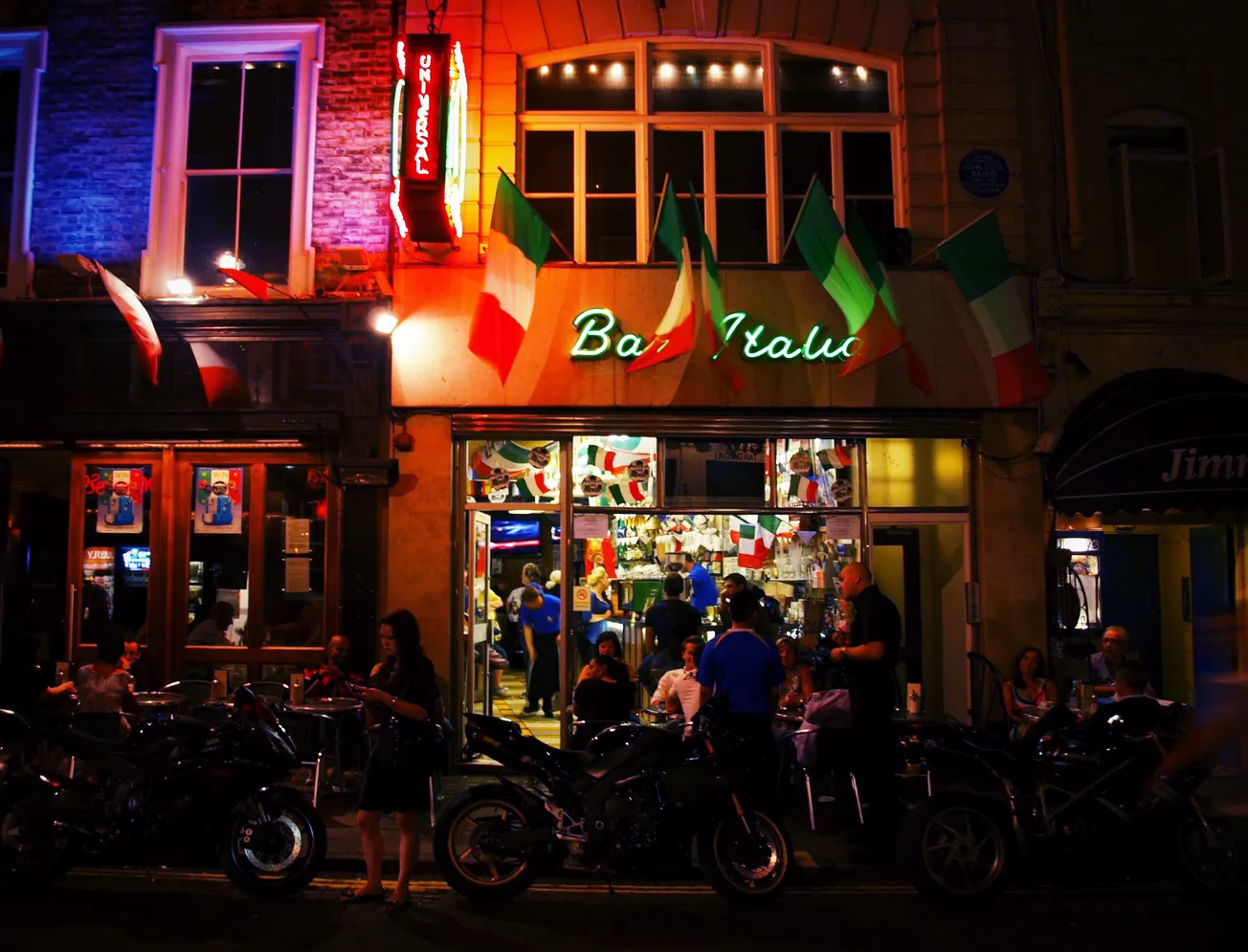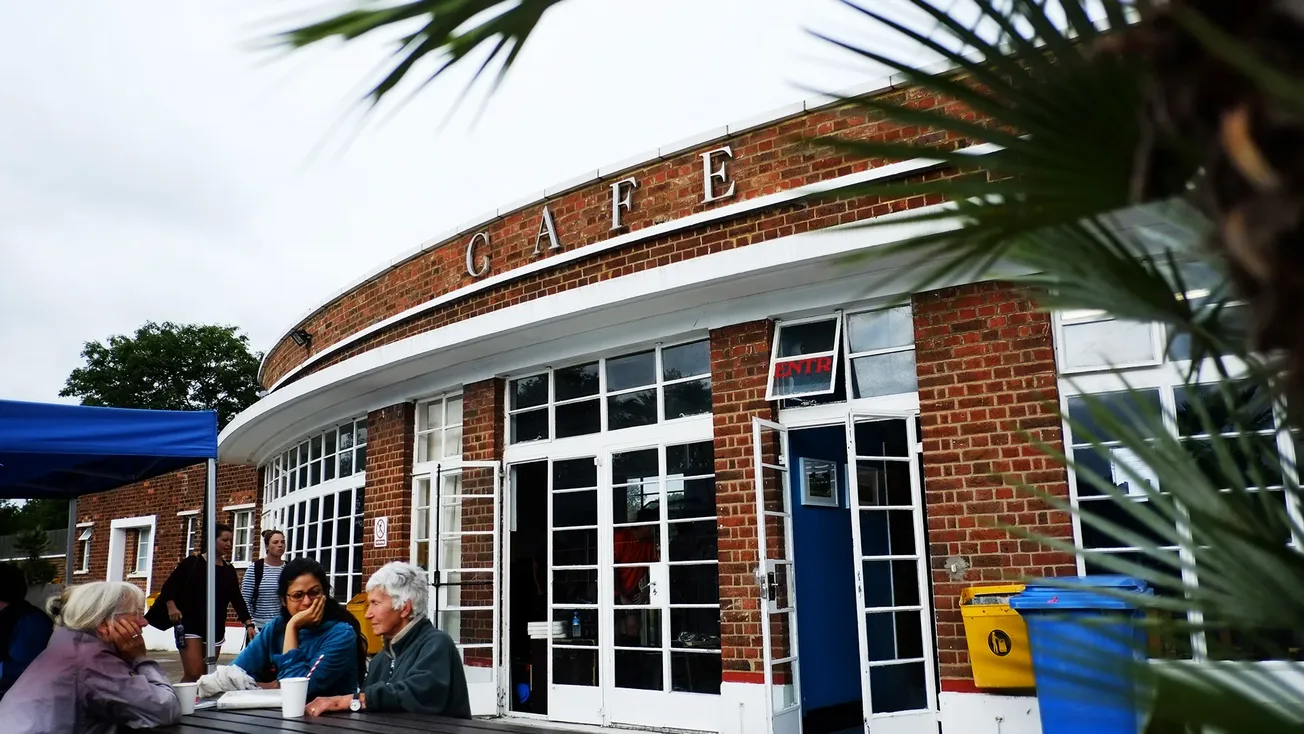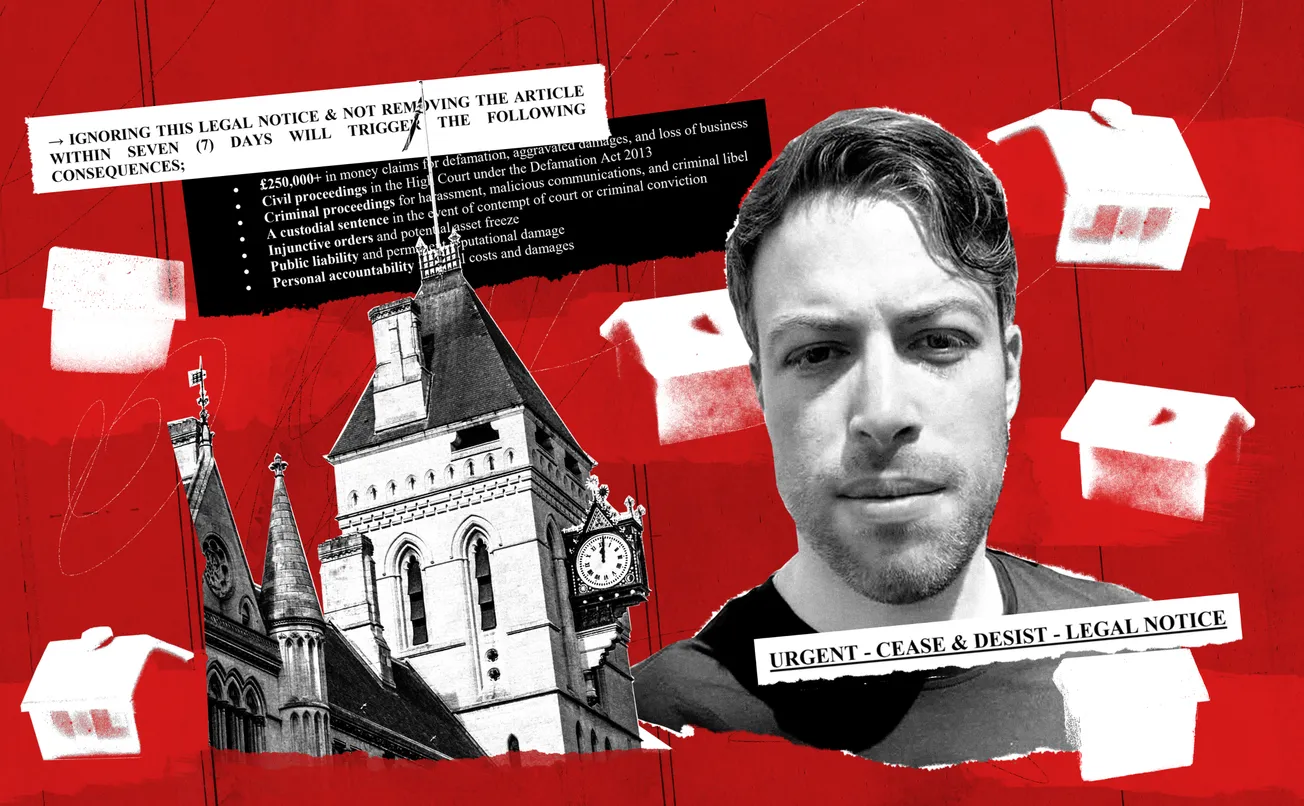Not so long ago, London’s literary scene was uncool. Its events were fusty, moribund affairs, where dowdy men and women in tweed jackets and moth-eaten knitwear would gather in bookshops, drink lukewarm wine from plastic glasses and return home by 10 p.m. But now, thanks to a slate of buzzy new reading nights where writers and poets perform their work, literature is back — and this time it’s not boring. These events are as raucous as any queer techno night, as glamorous as any fashion party. Far from being bookish nerds, the people who attend them are young, stylish and attractive. They have sex.
This is the emerging narrative around London’s new literary scene, which includes nights like Soho Reading Series, Deleted Scenes, New Papers, Rivet Reads, Adult Entertainment and New Work, all of which have emerged in the last three years. Featuring readings by both established and emerging writers, these events are busy and popular; unlike the scantly-attended book launches and stuffy lectures that once constituted the capital’s literature scene, they often sell out, standing room only.
These events seem like, and in many cases explicitly are, a deliberate attempt to import the energy of the downtown New York scene. With its raucous literary parties, glitzy book launches and buzzy reading events, NYC was, for a long time, a source of envy for many Londoners interested in that sort of thing, who felt the literary culture of their own city to be embarrassingly dreary by comparison. Now, it seems that the shoe is on the other foot: “New York is very quiet now, and the energy's in London,” Tom Willis, who founded Soho Reading Series and splits his time between the two cities, tells me.
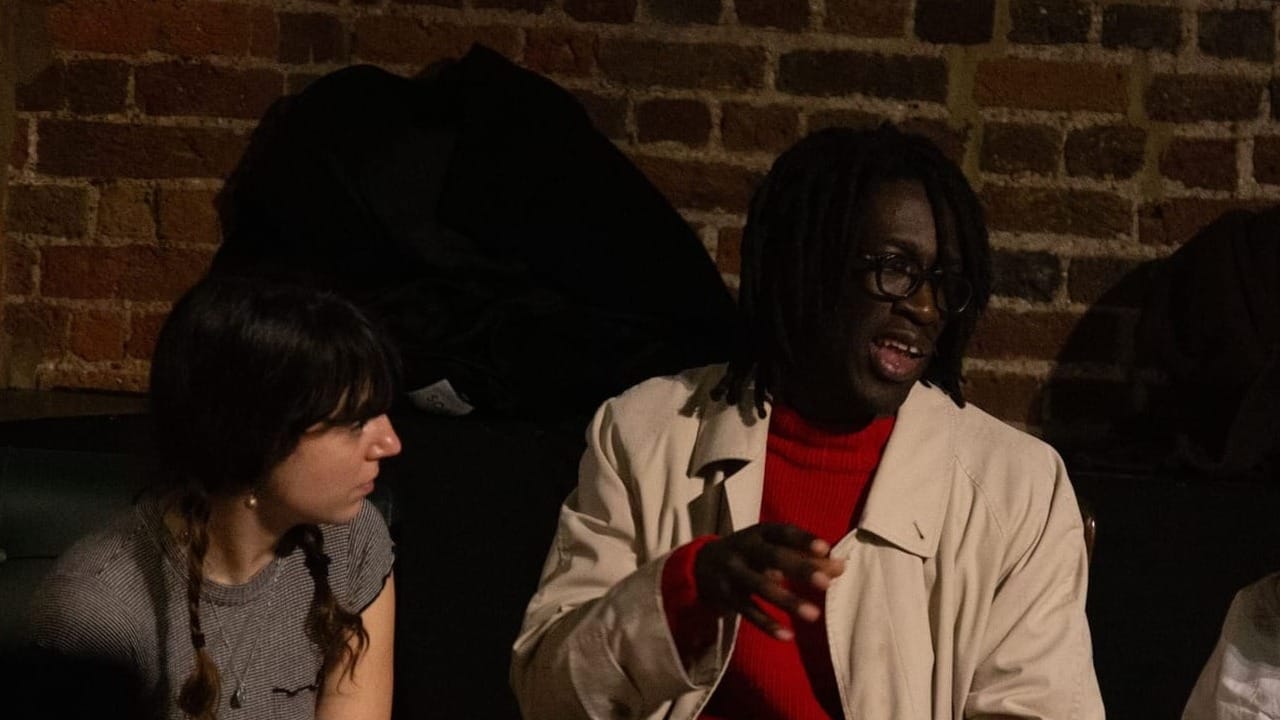
But alongside the hype, there have already been rumblings of a backlash: one review of Soho Reading Series, posted on Reddit, took exception to both the quality of the writing and the class status of the attendees, described as “rich young people”, “toffish men” and “the hereditary elite”. Still, even this negative account, which the author acknowledges may have been informed by a feeling of envy, doesn’t quite undercut the hype around Soho Reading Series — to paraphrase John Berger, being envied by people you don’t care about is the definition of glamour, and I’m not sure how many people in attendance that night would take exception to being thought of as “modish” and “thin”.
I had been aware of these new reading events myself for quite a while — it seemed like a new one popped up on my Instagram feed every other week — and I felt ambivalent about them. An attempt to emulate the New York scene struck me as contrived, even a little undignified; besides, a literary scene dominated, I assumed, by people who went to Oxford and Cambridge hardly represented a radical break with the status quo. More than anything, I was sceptical that these events were as glamorous, cool and sexy as people were claiming, or that these qualities were even important. So why, exactly, are reading series suddenly so popular — and already controversial? Are we simply making an already elitist scene even more stratified? And when people are reading less than ever before, is a literary event that "fucks" what we need to turn things around?
To answer these questions, I find myself on an unseasonably warm March evening at an arts centre in Peckham for an instalment of Soho Reading Series. As soon as I arrive, I realise I’ll only be able to undercut the narrative of glamour so far. I would love to be able to say “actually, everyone is hideous!” but I see a lot of people who could have been models, and at least five different women who looked like a long-lost Haim sister. Whether these people are “cool” depends on your perspective. The crowd is stylish, but the typical look is quite prim and aesthetically conservative compared to what you might see at a fashion party: a lot of dress shoes and long coats in muted colours (which, to be fair, I am also wearing); nothing too garish or colourful; no streetwear or statement pieces, and no-one — for better or worse — is wearing sunglasses indoors.
In the spirit of fairness, I will confess here that I have never enjoyed literary readings: I have seen some of my favourite writers read from some of my favourite books and spent the whole time wishing it was over. This leads me to assume that their appeal is about networking first and foremost. But when I ask Shaun, the first person I speak to — a man who could safely be described as conventionally handsome and, like everyone else I meet, a writer himself — why he would come to an event like this, he doesn’t see it in such cynical terms. He isn’t looking to advance his career or meet the right people, he says, but to find a community of other writers with whom he could collaborate, and also because he genuinely enjoys listening to other people read their work. I generally try to believe that people like the things they say they do, especially if I consider those things boring, which forces me to accept that some people attend these nights for reasons other than career advancement or the pursuit of social capital.
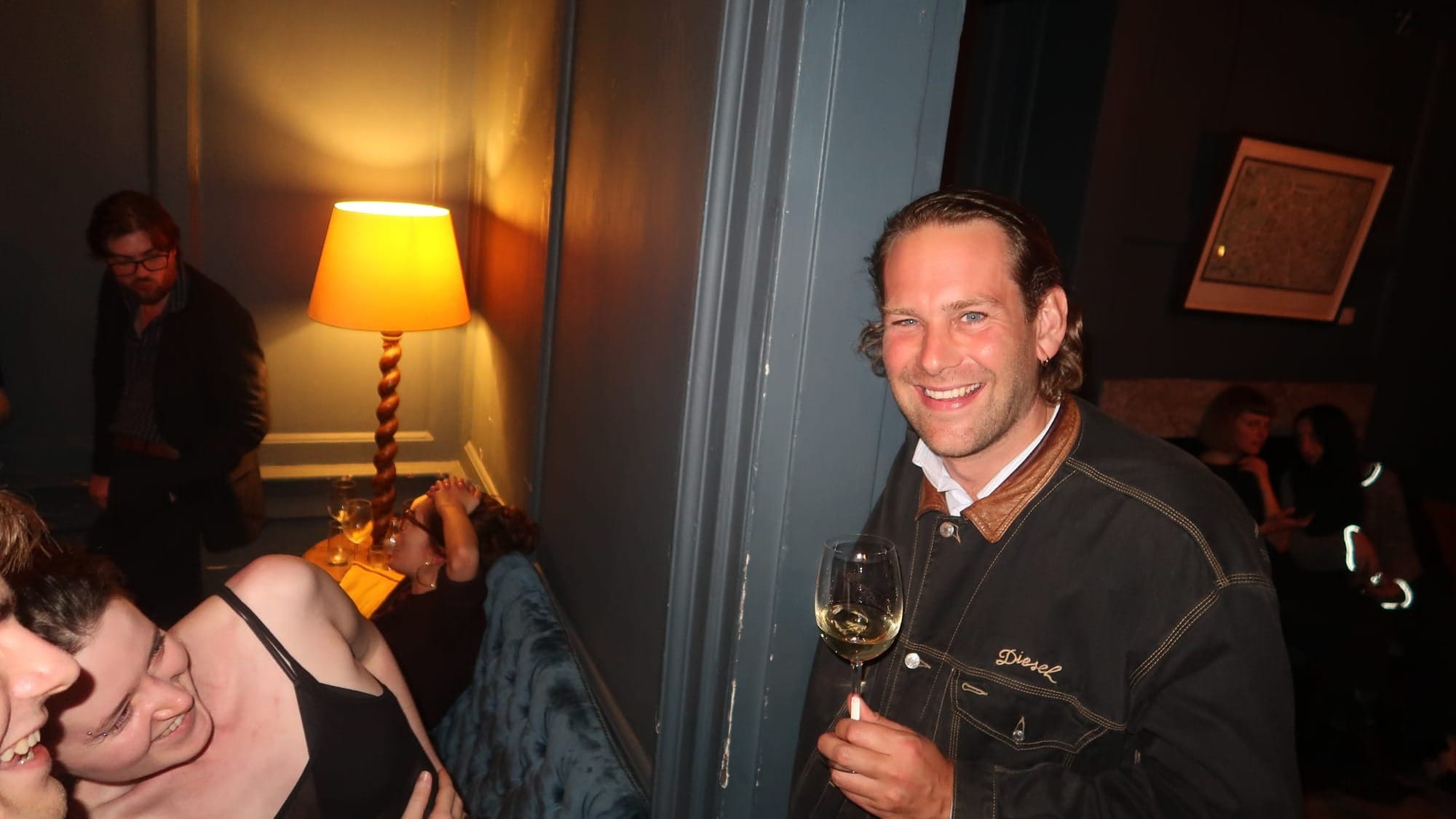
When the reading is due to start, we sit down cross-legged on the floor like children ahead of a school assembly. It’s a fairly large room and comfortably packed; there is a sense of pleasant anticipation. First up is the art critic Dean Kissick, who reads a story about a woman’s experiences of urban alienation as she travels around London. It’s pretty funny, as are most of the readings that follow. I notice that these events seem to incentivise humorous writing above any other form — laughter being the most immediate form of audience feedback — which feels slightly like cheating to me: two or three big laughs during a ten-minute literary reading can be counted as a triumph; the same hit rate for a stand-up comedian is a disaster.
Willis, who launched Soho Reading Series in 2023, began the events because he wanted to build a scene, something which, he tells me over the phone, he emphasised to an almost gauche extent. Soho Reading Series is mostly free (depending on the venue, there’s occasionally a £5 entry charge) and from the beginning Willis wanted it open to anyone who wished to attend. “It’s not just a series of random events: there's an expansive through-line, a narrative which engoldens the events.”
This approach has rubbed some people up the wrong way: the scathing Reddit post mentioned earlier lambasted Willis for his “constant references to the scene” and his remarks that the crowd were “the 250 coolest people in London,” although there was nothing so self-aggrandising at the reading I attended (perhaps because Willis wasn’t there). Willis brings up the post, unprompted, to suggest that some people are failing to get the joke. “There’s this slightly ironic pretence that something exciting and dramatic is happening: this lie you tell yourself that you’re skimming across the surface of things or living through the Belle Epoque. It’s corny and campy, right? But why not play-act a little bit? Why not pretend that life is more fun, interesting and cool than it actually is?”
Willis is explicit about being inspired by the literary scene in downtown Manhattan, which he first encountered while doing an exchange year at an American university. “There were a lot of plays, events, readings and parties that were also readings. It was a really fun, exciting time: you’d go to a big literary party and it would get written up in The New York Times the next day, which was a very cool, un-English experience”. This was the energy he wanted to bring to London; the idea being that these events would be parties first and readings second. At that time, the literary scene in London was “totally dead”, he says: “I think it was very valuable to import New York glamour to London, and I think it’s demonstrably worked,” he says.
New York’s downtown scene — an online idea of contrarian coolness as much as a physical place, often collapsed under the banner of “Dimes Square” — comes with a particular set of political connotations. Whether this is reductive or not, it is now associated with transgression for its own sake, an opposition to identity politics and figures Peter Thiel, the billionaire CEO of Palantir who in 2023 funded an ‘anti-woke’ film festival in Manhattan, and Curtis Yarvin, a blogger, somewhat influential on the American right, who believes the US should be ruled by a CEO-king.
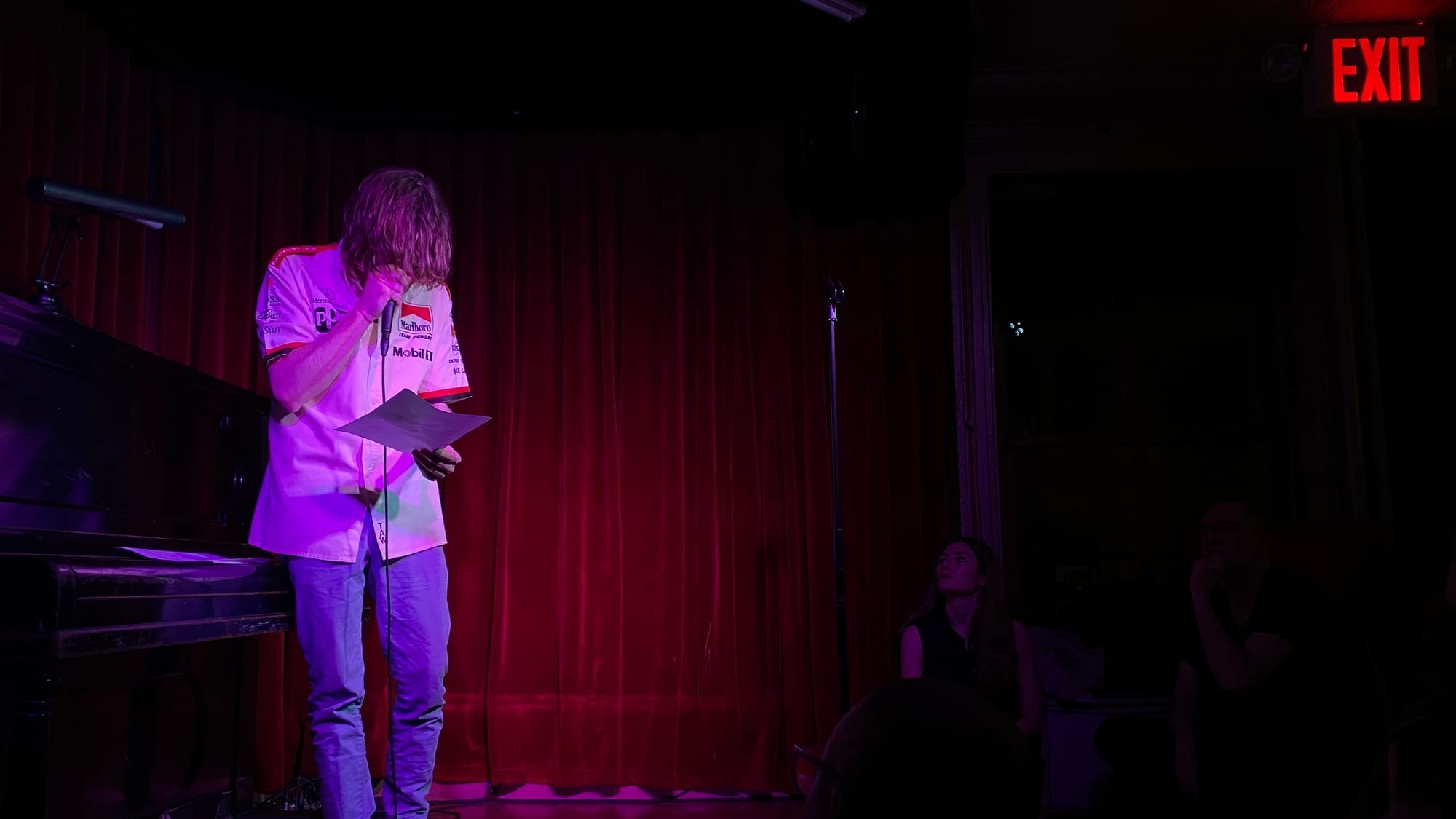
In light of this, I was sceptical when I heard that Soho Reading Series was a deliberate, self-described effort to transplant the Lower East Side onto London. But as Willis tells me, this was never the aspect of New York he was trying to emulate. “I don't want right-wing politics anywhere near [my events],” he says. “The people doing this in London are way more left-wing and way less involved in dark money, which is nice. I think London has the potential to take the fire and spark of New York and then do something much better with it, because it's a more inclusive, less maniacally self-centred place.” Last year, Soho Reading Series organised a number of Palestine fundraisers, which doesn’t suggest he's interested in securing Thiel’s patronage.
I ask Kissick, who has spent time in both scenes, whether he’s noticed any of that political energy bleeding over into London. “No, I haven't, and I hope it doesn’t happen. We're in a different moment now. I thought Dimes Square was very apolitical for the most part, which is something I liked about it; it was quite free, but it’s turned into something extremely different.” Beyond politics, he doesn’t believe Britain should be looking to the US in any sense: “People hate America, generally, here and elsewhere, so why take any social, cultural or political cues from it?”
At Soho Reading Series, I don’t encounter anything which could be even loosely described as right-wing or anti-woke. Far from being subjected to any poetry extolling the virtues of neo-monarchism or lampooning non-binary baristas, the writing I hear both at Soho Reading Series and New Papers, an event I attend the following Saturday, embodies Kissick’s memory of the old Dimes Square scene in so far as it is almost exclusively apolitical. This isn’t true of all of the readings, but if I can discern any aesthetic thread connecting them, it is an affectless delivery and a kind of wry, gentle surrealism (a few different poems feature humorous encounters with improbable figures from popular culture; one story describes a giant tarpaulin descending upon New York, another features a talking fox.)
I find a lot of this work funny, but the cumulative effect is enough to make me start yearning for the kind of breathless slam poetry about intergenerational trauma or sexual assault which was de rigueur ten years ago, if only for a change of pace. Now that the pendulum has swung so far in the other direction, the most transgressive thing you could do in today’s scene would be to write with the earnestness and didacticism of Amanda Gorman.
While Soho Reading Series is often spoken of as a trailblazer, it isn’t the first literary event of its kind in London (as Willis acknowledges), and not everyone in the scene is enamoured with the idea that the city should be taking its cues from New York. “I think London is London,” says Paul Johnathan, whose night Deleted Scenes was first launched in August 2022, predating Soho Reading Series by over a year. “We’ve got Kate, we’ve got Naomi. And to quote Naomi: ‘you're not on my level, Nicole, you never will be — so don’t compare yourself to me’.” When I ask if that quotation was directed towards Soho Reading Series, he clarifies: “It’s addressed to anyone who wants to imitate what I’ve tried to put together.”
Johnathan, a writer and art PR, threw the first event together at short notice as a favour to a friend who was promoting their book. The venue was so packed — 60 people squeezed into the tiny basement room of Beasy bar in Soho — that he decided to start a regular night. When I go for a drink with Johnathan (at Beasy, fittingly), he tells me that he sees what he’s doing as different to the other readings which have cropped up in recent years. “People hook up at my events. People have fun. They get drunk,” he says.
I point out that that’s how Soho Reading Series presents itself as well. “Well, that's not what I've heard from people who have been to both. One person who has been to quite a few of mine said that my event is the only one that ‘fucks’. Believe me, those bathrooms have seen a lot.” What’s the point of there being sex and hedonism alongside the writing itself? “Gosh, I don't know,” Johnathan says. “I think if you put a bunch of young people in one room, there's probably going to be a lot of sexual energy bouncing off the walls. Thankfully in this country, we are graced with a lot of talented writers who also happen to be quite attractive, so it's kind of inevitable — I don't think it's necessarily connected to the fact that it's literature.”
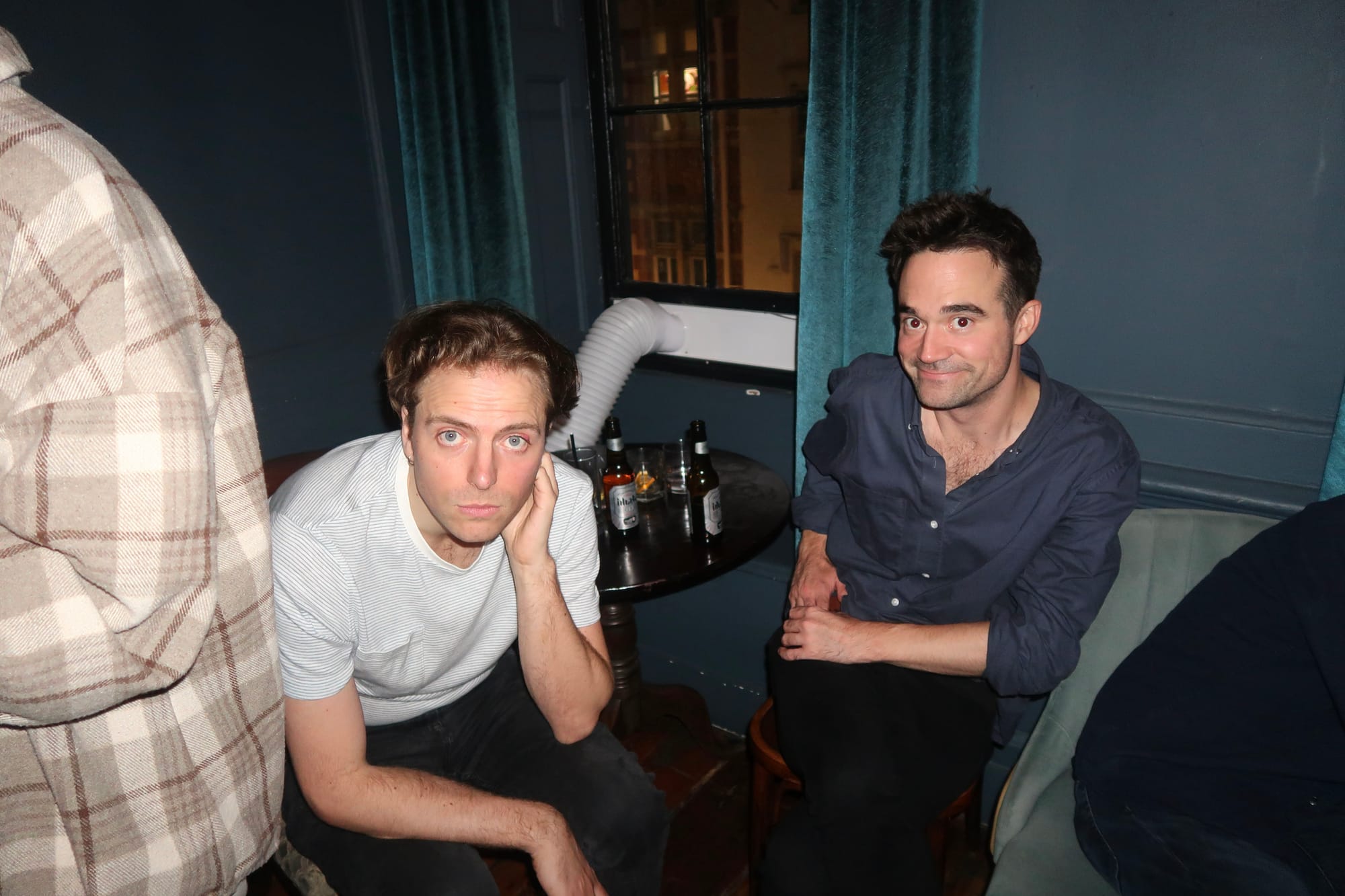
In fact, Johnathan is sceptical that there’s any real benefit to there being a literary scene at all, in terms of the writing being produced. “I’d be inclined to say there’s a negative effect,” he says, while acknowledging that reading in public allows writers access to audience feedback and helps them to promote their work. “Everyone ends up sounding similar and everything becomes repetitive and unsexy. That’s why Deleted Scenes has such a variety of writers,” he continues. “I bring people together you wouldn’t normally find in the same room, and when they do end up in the same room they don’t just become echoes of each other.”
He does believe, however, that there is something inherently worthwhile in bringing people together, whether that’s related to literature or fucking in a public bathroom. “If you have a common interest in books, why not come together at a great bar like this that might need a bit more money and get smashed, talk about books and listen to great people read?”
“Deleted Scenes really is a sexy space, and Paul [Johnathan] more than anyone knows how to create that,” says Marina Scholtz, a writer who has performed at the event and who describes it as an antidote to the sexist stereotypes she has experienced elsewhere. “I guess because I’m a young woman who looks a certain way, I’ve never felt I’ve been taken seriously in the book world. I often feel dismissed by that ‘literary hot girl’ trope, which is not something I ever signed up for, and by men in traditional positions of power within the literary world because of the way I present. That’s just not the case for Paul at all.” She is careful not to present the other reading events as more cerebral and Deleted Scenes as merely the hot one, however: “Paul understands that sexiness can be serious.”
So what is the point of a scene? For Johnathan, the key impetus seems to be enabling good-looking people to fuck one another. Kissick believes in getting out of the house: “I think it's good to have a social scene, full stop,” he says “I don't think everyone here [at Soho Reading Series] is necessarily a literature obsessive. A lot of people who are very serious about writing and care about literature would never come to this, which is totally fine. I don't think the two are the same thing, but I think social scenes are just good for people.”
Out of everyone I speak to, Willis is the only person who argues that the existence of a scene might have a more substantive benefit to the capital’s literary culture. “In New York, a lot of people who wouldn't have been writers became writers because there was extra social capital, it became cool and sexy,” he says. “If everyone tries at something, there's going to be a lot of bad writing, but there's good writing as well, and I think you only see the results 5 or 10 years down the line. If literature is cool again, more people are going to write, more people are going to produce stuff and more magazines are going to be published.”
This is probably true, but I’m not sure that the typical crowd at these events (by Willis’ own account, there are a lot of “posh people” and “fruity accents”) are in particular need of encouragement — they’re going to dominate the literary world anyway, as they always have done. And the value placed on glamour, sex and hedonism, however tongue-in-cheek, is inevitably going to shape the work which is produced and the writers who are afforded a platform. I had a good time at Soho Reading Series, where I met a lot of nice, interesting people and felt the siren call of the scene — it seemed like it would be fun to become a regular fixture and get to know more people. But there is no correlation that I can see between being hot and being good at writing, and I suspect that a truly interesting London literary vanguard would also include people who are ugly, uncool and badly dressed — and perhaps even people who never get laid.
The Londoner gossip box
Really to spill? Come slip your secrets into our new gossip box: the horrible boss at the bar you work at, the beef brewing at your law firm, the spat in the WhatsApp group for your kids' school. And don't worry, it's strictly confidential.


